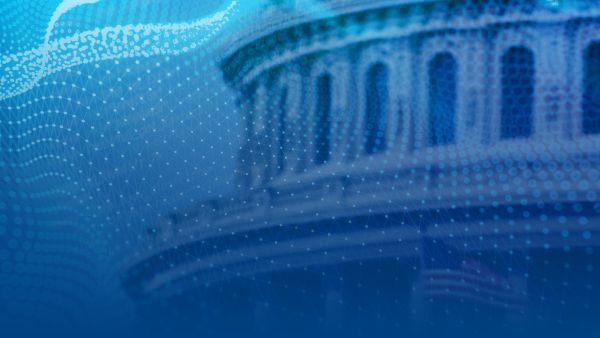Decentralized Tech Summit, US Financial Intelligence Forum, Rule 1033 and Open Banking

In This Newsletter
Decentralized Tech Summit
US Financial Intelligence Forum
Rule 1033 and Open Banking
Decentralized Tech Summit
On April 2, Nicole Valentine, FinTech director, Milken Institute Finance, participated in the 2025 Decentralized Tech Summit, which took place at the National Press Club, Washington, DC. The event—held in partnership with Project Liberty Institute and organized by the Decentralization Research Center—brought together 100 influential leaders across government, academia, venture capital, and crypto policy to shape the future of decentralized technology.
With Congress and the Administration increasingly aligned on comprehensive blockchain policy, the Summit focused on policy frameworks for the broader ecosystem of decentralized applications. Key topics included advancements and use cases in artificial intelligence, digital identity, data cooperatives, and decentralized social media, alongside critical discussions on how these innovations intersect with regulation, governance, and societal impact.
The agenda featured Securities and Exchange Commissioner Hester Peirce, who discussed her role as head of the commission’s Crypto Task Force, as well as Sheila Warren, CEO of Project Liberty Institute, who discussed the organization’s recent paper on democratic data models and cooperatives. The agenda also featured lightning talks by Filecoin’s Marta Belcher, Coin Center’s Peter Van Valkenburgh, and Fordham Law’s Donna Redel.
US Financial Intelligence Forum
The US Financial Intelligence Forum, hosted by Amazon Web Services at the Milken Center for Advancing the American Dream, brought together senior government officials, financial regulators, and technology experts to explore how financial and artificial intelligence (AI) are converging to defend US national security.
The forum spotlighted the real-world impact of AI-powered solutions on fraud detection, payment integrity, and financial threat prevention across the federal landscape. From senior Treasury officials to FinTech pioneers, conversations reflected the increasingly interwoven relationship between financial innovation and national security.
Kevin Hassett, director of the National Economic Council, participated in a fireside chat moderated by Valentine. Hassett reflected on his previous role at the Council of Economic Advisors, the history of money, and his past work with community development and wealth-building initiatives.
The discussion touched on the Institute’s broader recent work on long-term wealth-building and Hassett’s contribution to that research as presented in a paper by Rob Shapiro, senior advisor, and Michael Piwowar, executive vice president at the Institute, titled The Economic Impact of Invest America Accounts.
The Future of Rule 1033 and Open Banking
Finalized in October 2024, the Consumer Financial Protection Bureau’s (CFPB’s) Personal Financial Data Rights rule—commonly referred to as Rule 1033—established a framework for consumer-authorized data sharing in financial services. Based on Section 1033 of the Dodd-Frank Act, the rule gives consumers the right to access and share their financial data, empowering them to switch providers, access better credit terms, and engage more freely with FinTech apps.
Rule 1033 requires banks, credit card issuers, digital wallet providers, and other data providers to make data on transactions, accounts, and payment initiations available—at no cost—to consumers and their chosen third-party apps through secure Application Programming Interfaces.
The rule represents a big step toward open banking in the US and has long been championed by FinTechs, who maintain that it enhances consumer choice, competition, and innovation. Open banking rules in Europe have been in place since 2015 following the Revised Payment Services Directive of the European Parliament and Council.
Legal and political headwinds may hinder implementation. Banking trade groups filed lawsuits alleging that the rule overstepped CFPB authority and introduced unworkable technical and liability standards, Pymnts reports. Meanwhile, the Trump Administration appointed Russell Vought as acting CFPB director. Vought halted enforcement actions and suspended further rulemaking, casting doubt on the rule’s future under a diminished agency, Banking Dive reports.